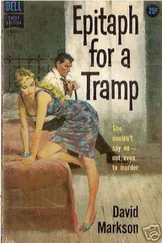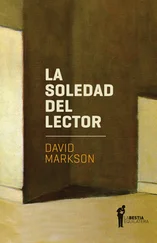Well, and then there are all of those cats which would have been leery about going to the garbage disposal area because of so many seagulls doing their scavenging, and there is the cat which Taddeo Gaddi once did a painting of and was speaking about as being russet until Giotto informed him it was burnt sienna.
Which Theophanes the Greek had informed Giotto before that.
I believe that cats may have been mentioned in connection with such people as Sor Juana Inés de la Cruz and Ludwig Wittgenstein and Anna Karenina in some way or other, as well.
Then again I may be in error about Sor Juana Inés de la Cruz, not knowing whether anybody who lived in a convent was permitted to have a cat.
I am assuming that Sister Joan Inez of the Cross lived in a convent.
But which is to say that St. Teresa would not have had a cat in Toledo either, then.
Well, and I now realize I am in error about Ludwig Wittgenstein, too, since any cat of Wittgenstein's would have been just as leery about his own pet seagull as were all of those other cats about the seagulls at the garbage disposal area.
Or at least during Wittgenstein's period at Galway Bay, this would have been.
Galway Bay.
Andrea senza errori.
Which is not to say that Wittgenstein might not have had a cat years earlier while he was mowing the lawns at a monastery, on the other hand.
Unless monasteries had the same rule as convents.
So that St. John of the Cross would have been still somebody else who could not have had one.
Jan Steen owned a brewery in which there might have been a cat, however.
Heaven only knows why writing about a monastery should have reminded me of that, although I am pleased to have thought of it nonetheless, having believed for the longest time that I knew nothing at all about Jan Steen.
Although what I am also now remembering is that Fra Filippo Lippi once eloped with a nun, if that is in any way connected with anything?
Well, possibly what it is connected with is that if the nun had not been permitted to have a cat before, she might have gotten one then.
Anna Karenina's cat was run over by a train, if I remember.
I am still somewhat upset about that question of having repeatedly believed I was hearing the Four Last Songs by Strauss when what I was really hearing was the Bachianas Brasileiras number five, incidentally.
Even if I have forgotten whether there was a cat near Robert and Clara Schumann's piano in Song of Love, likewise.
Although what I do only this instant realize is that there happen to be books in this very house by Jacques Levi-Strauss and Jacques Barthes, actually.
Except now what troubles me is why so many people would have been excited about instructions as to how to behave at table or a guide to the Eiffel Tower.
Unless perhaps it is the guide to the birds of Southern Connecticut and Long Island Sound that I am mixing up, here.
In any instances lately when I have spoken about my pitcher, by the way, I should have more truthfully spoken about a jar.
Pitcher merely having more of the sound of something one would carry to a spring, being all.
Even if for the life of me I have no idea what I have been saying that has now made me think about Marina Tsvetayeva again, either.
Especially since that is one of the saddest stories I know.
What happened having been that the Russians let such a wonderful poet practically starve to death, all alone and in exile.
After having killed her family.
So that she finally hanged herself.
And so that I might have actually driven right past her grave on my way across Russia, too, without ever having known where it was.
Even if nobody ever really knew, for that matter.
God, the things men used to do.
Not that they could ever again find the pauper's grave that Mozart had been buried in either, after the rain had stopped the next morning.
That being a different sort of story altogether, perhaps, but still also sad.
Have I ever said, just to deliberately change the subject, that it was at a garbage disposal area that Van Gogh actually painted his famous canvas called The Broken Bottles?
Which is at the Rijksmuseum, I think.
Van Gogh having had that gift for making his pigments sometimes seem to glow, too, by the way.
Except that in Van Gogh's case what one generally catches one's self doing is starting to glance across one's shoulder, as if to figure out where all the sunlight is coming from.
There would appear to be no record as to which particular paintings Van Gogh painted while wearing the old socks that Alfred North Whitehead later used to put on when he went for walks in the woods near Cambridge, on the other hand.
Although another thing I have perhaps never mentioned is that Ludwig Wittgenstein actually used to carry sugar in his pockets, when he went for walks near Cambridge himself.
The reason he carried the sugar being to give it to horses he might see in fields while he was walking.
On my honor, Wittgenstein used to do that.
For some reason this story is another that reminds me of something, even if I have no idea what, at the moment.
Doubtless I will think of my cat's name in a day or two also, however.
And in the meantime what I have just decided to do is to change the name of the cat which scratches at the outside of my window.
What I am now calling that cat is Magritte.
Well, Magritte having more of a connection with a cat that is not really a cat than Van Gogh does, being all.
Even if the very painting by Van Gogh I have just mentioned is a painting of a fire which is not really a fire but is only a reflection of a fire, actually.
And which perhaps I have never even seen except in a reproduction either, since on second thought I do not remember it at the Uffizi after all.
Wittgenstein was never married, by the way. Well, or never had a mistress either, having been a homosexual.
Although in the meantime when I just said in the meantime I truly did mean in the meantime.
It now being almost an entire week since I additionally said I would doubtless think of my cat's name in a day or two.
And this in turn being by far the longest period I have allowed to go by without sitting at the typewriter.
My shoulder and my ankle no longer hurting as badly as they did, however.
Which is not to say that the pains in my shoulder or my ankle had anything to do with my not sitting at the typewriter.
Or that the pains no longer being as bad as they were has anything to do with my being back.
For some reason all I felt like doing was lying in the sun, for a time.
Which is also to say that it has stopped raining, obviously.
Well, one hardly having been able to lie in the sun if it hadn't.
Obviously.
In fact I have been having some rosy-fingered dawns again after all, too.
Even if how I happened to feel through most of the week was depressed, to tell the truth.
I believe I have said that I felt depressed at least once before, actually, while writing these pages.
Although perhaps what I more exactly said I felt once before was a certain undefined anxiety.
Which in that instance would have only been because of my period coming on, however.
Or because of hormones.
And so which would have not really been anxiety at all, but only an illusion.
Even if one would certainly be hard put to explain the difference between an illusion of anxiety and anxiety itself.
And in either case how I still felt this time was depressed.
Even if I had no idea why.
And moreover even if feeling depressed and having no idea why can generally leave one feeling even more depressed than that.
I was fairly certain that none of it had anything to do with not being able to remember the name of my cat.
Читать дальше












